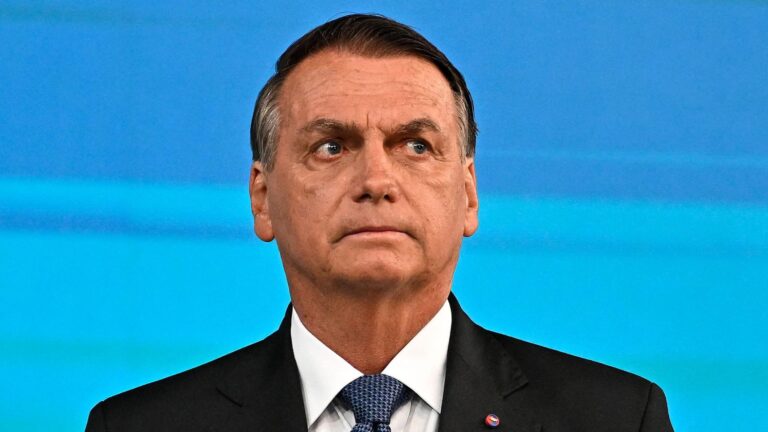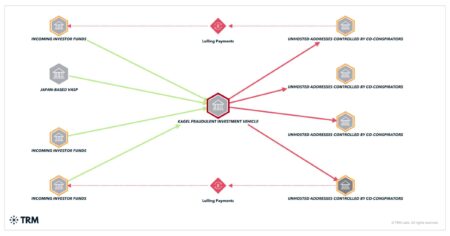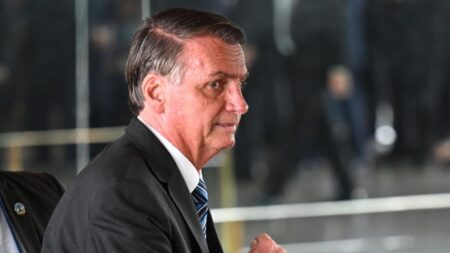In a meaningful escalation of political tensions in Brazil, former President Jair Bolsonaro has been formally charged with attempting to incite a coup following his defeat in the recent presidential election. The charges come amid growing concerns about the integrity of BrazilS democratic processes and the stability of it’s governing institutions. Bolsonaro’s presidency, marked by controversial policies and divisive rhetoric, culminated in a contentious election that has left the nation deeply divided. This article explores the implications of the charges against Bolsonaro, the reactions from various political factions, and how this unprecedented situation might shape the future of Brazilian politics in the wake of a turbulent electoral period.
Developments in Brazil’s Political Landscape Following Election Outcome
Amid the turbulence following the recent elections in Brazil, the political landscape is rapidly shifting as former President Jair Bolsonaro faces serious allegations of attempting to orchestrate a coup. The electoral defeat has not only sparked protests from his supporters but has also drawn the attention of law enforcement agencies. Legal experts note that the charges may set a precedent in Brazilian politics, highlighting the fine line between political dissent and actions deemed as efforts to undermine democratic institutions. Bolsonaro’s rhetoric during the campaign, which often leaned toward undermining electoral integrity, is now under scrutiny as investigators look into the implications of his post-election behavior.
as the country grapples with the fallout,various political factions are positioning themselves to capitalize on the evolving situation. Key developments include:
- Heightened Tensions: Increased street protests and counter-protests, reflecting deep societal divisions.
- Legal Ramifications: Investigations into Bolsonaro’s activities may led to broader repercussions for his allies.
- International Reactions: Global leaders are closely monitoring the developments, expressing concern for Brazil’s democratic processes.
In a broader context, the ramifications of this political upheaval are yet to be fully understood. A simplified overview of the current key players and their anticipated roles is presented below:
| Political Figure | Current Role | Stance |
|---|---|---|
| Jair Bolsonaro | Former President | challenging the election outcome |
| Luiz Inácio Lula da Silva | President | Advocating for unity and democratic stability |
| Supreme Court | Judicial Authority | Overseeing investigations and upholding election results |
With the country entering a possibly volatile period, the response from various stakeholders will be critical in shaping Brazil’s immediate future.
Legal repercussions for Bolsonaro: Analyzing the Coup Charges
Following the recent elections in Brazil, former President Jair Bolsonaro has found himself at the center of a severe legal storm, facing allegations of orchestrating a coup attempt. These charges stem from his actions and rhetoric during the transition period after the electoral defeat, raising questions about the stability of Brazil’s democratic institutions. Legal experts are analyzing the implications of these charges,which could lead to significant penalties,including potential imprisonment. Bolsonaro’s defense hinges on arguments concerning free speech and political expression; however, as these allegations unfold, the core of Brazil’s rule of law faces a crucial test.
The legal consequences for Bolsonaro could extend beyond criminal charges. Key potential outcomes include:
- Civil Liability: bolsonaro may face civil suits from individuals or groups opposing his legal stance.
- Political Fallout: A conviction could affect his ability to hold public office in the future, marking him politically for years to come.
- International Repercussions: Brazil’s relationships with other democratic nations might strain due to these serious allegations against a former leader.
| Charge | Description |
|---|---|
| Coup Attempt | Allegations of inciting a rebellion against the elected government. |
| false Declarations | Claims of misleading the public about election integrity. |
| Conspiracy | Accusations of collaborating with extremists to undermine democracy. |

Public Reaction and implications for Brazilian democracy
As Brazil reels from the recent charges against former President Jair Bolsonaro for allegedly attempting a coup after losing the election, public reaction has been polarized. Supporters of bolsonaro continue to rally behind him, viewing the accusations as politically motivated attacks by a left-leaning establishment. Conversely, many Brazilians are expressing their relief and outrage at the prospect of holding powerful figures accountable. This divide is reflective of a larger cultural and political schism that has deepened in the country. The ramifications of this case are likely to resonate beyond the courtroom, influencing public trust in institutions and the political landscape as a whole.
The implications for Brazilian democracy could be profound, depending on how these events unfold.A looming question is whether the judiciary will uphold democratic principles in the face of intense societal pressure. Key points emerging in public discourse include:
- Increasing polarization within Brazilian society.
- Calls for reform in political accountability mechanisms.
- The role of social media in shaping public perceptions of justice.
| public Sentiment | Supporters’ View | Opponents’ View |
|---|---|---|
| Belief in Democracy | Justice is being served | Political witch-hunt |
| Trust in Institutions | Reinforcement of legal authority | Growing skepticism |
| Future of Governance | Hope for change | Fear of instability |

recommendations for strengthening Electoral Integrity in Brazil
To enhance the electoral integrity in Brazil, it is critical to implement a multifaceted approach that involves various stakeholders in the democratic process. Strengthening the independence of the judiciary must be a priority. This includes ensuring that the judiciary is free from political influence and able to rule impartially on electoral disputes. Additionally, investing in technology and infrastructure is essential for conducting secure and transparent elections. This means not only upgrading voting systems to prevent tampering and hacking but also enhancing the security measures for counting and reporting results.
Moreover, fostering public awareness and civic education plays a vital role in building a culture of clarity. Empowering citizens with knowledge about their voting rights and the electoral process can significantly reduce misinformation and increase public trust in electoral outcomes. Collaborative efforts should also focus on engaging civil society organizations to monitor elections and provide oversight. Establishing a framework for whistleblower protections would encourage reports on electoral malpractices while safeguarding those who come forward. The combination of these strategies will provide a robust foundation for future elections, ensuring that they reflect the will of the people.
The Way Forward
the recent developments surrounding former Brazilian President Jair Bolsonaro’s actions following his electoral defeat highlight significant tensions within Brazil’s democratic framework. The charges against him for attempting to incite a coup serve as a stark reminder of the challenges democracies face in the wake of contentious elections. As investigations unfold, the implications of Bolsonaro’s behavior will likely resonate not only within Brazil but also across the global stage, where the health of democratic institutions is under increasing scrutiny. moving forward, the international community, alongside Brazilian citizens, will be watching closely how this situation evolves and what it means for the future of Brazil’s governance and stability.PBS NewsHour will continue to provide updates and in-depth analysis on this crucial issue.




